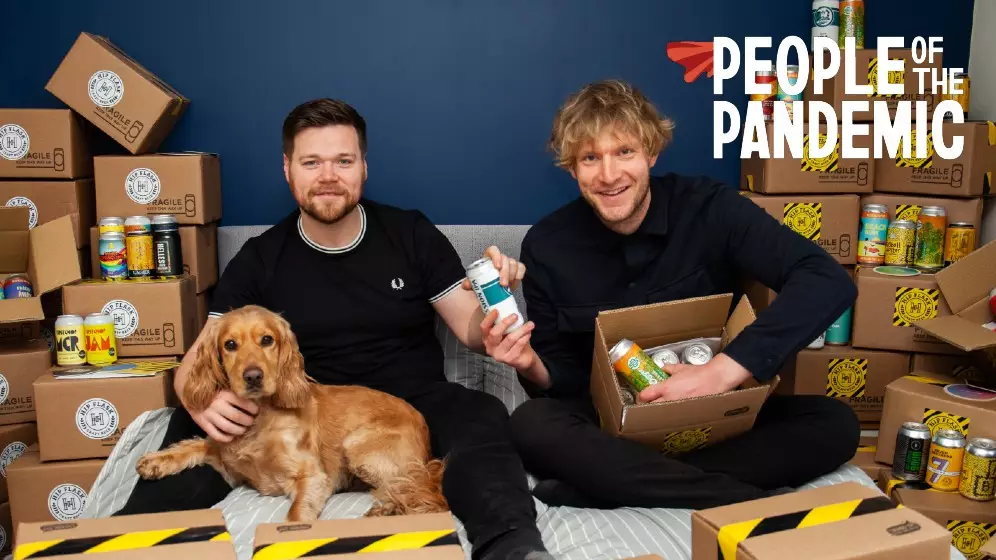
It's hardly a revelation that the coronavirus pandemic has laid businesses low.
The ever-altering restrictions have left all non-essential businesses trapped in a cycle of opening and reopening, leading thousands within the retail and hospitality industry to shutter their trade forever.
However, amongst the millions furloughed and others left without any employment at all, there have been plenty of stories of those who've stepped up and used the situation to their advantage.
Advert
Whilst business closures have rocketed to levels rarely seen in recent years, business creation has also increased significantly, as people look to find new ways to prosper in an unpredictable and ever-changing world.
Some have used existing skills to create a new role for themselves; others have embarked upon a complete career change. But all have managed to carve out a new way against the backdrop of uncertainty and negativity created by this wretched pandemic.
Desperate times call for desperate measures, and if that means licensing a spare room so you can shift vast quantities of booze from it, so be it.
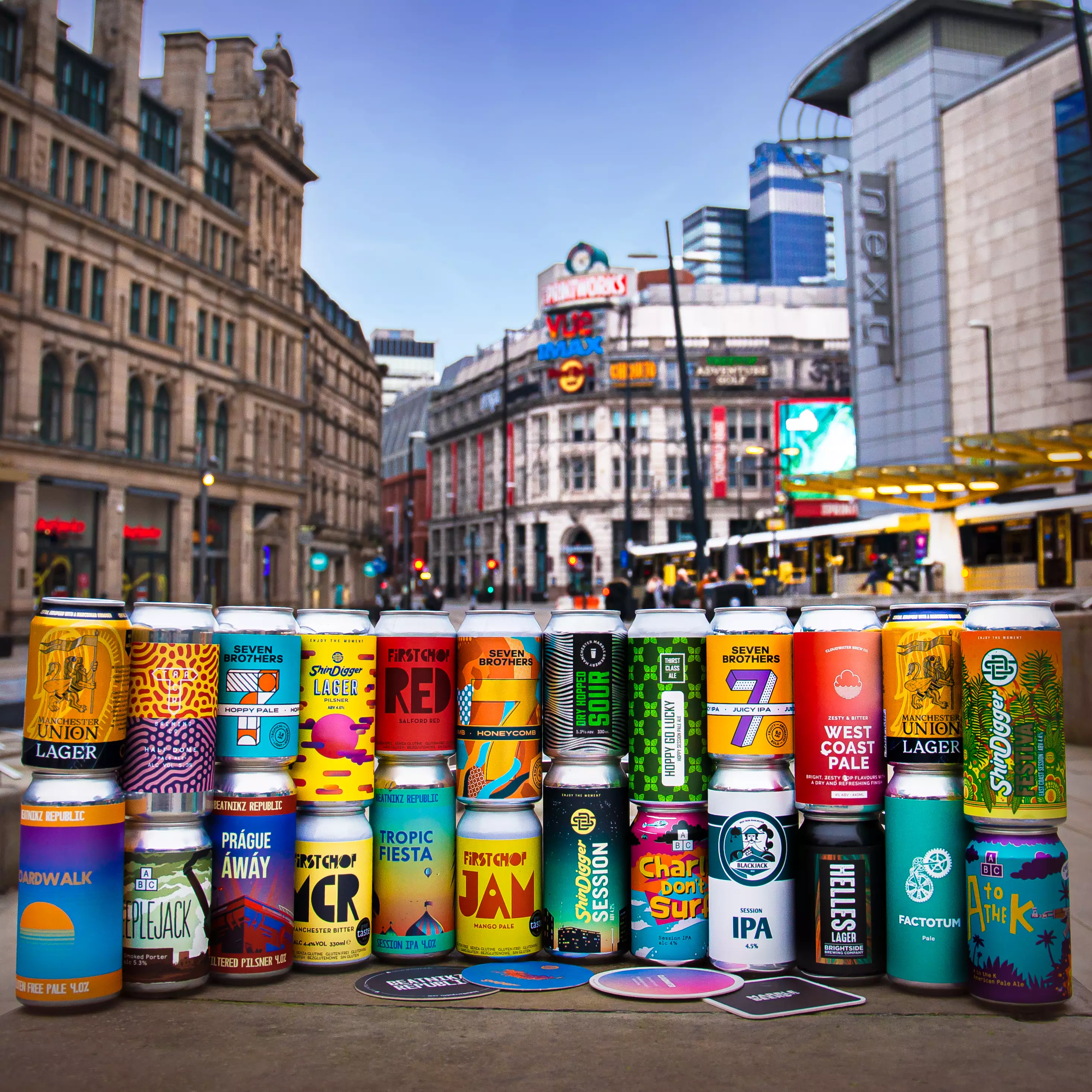
That's exactly what Phil Atkinson and Sam Sidebotham did.
Both were furloughed from jobs in the hospitality sector during the first lockdown, before Sam was eventually made redundant altogether in July.
Spotting an opportunity to keep making some money whilst working together as best friends - Sam is to be the best man at Phil's upcoming wedding - they started up Hip Flask, a beer delivery service specialising in breweries local to their home city of Manchester.
Now, they're working around the clock to fulfil the demand - and even plan to open a bar together in future.
Not bad, given that their business only kicked off in May.
"When we were furloughed, I said 'alright, let's give it an opportunity," said Phil. "We were still getting 80 percent of our income, so instead of twiddling our fingers we thought we'd give it a go and see what happened from there."
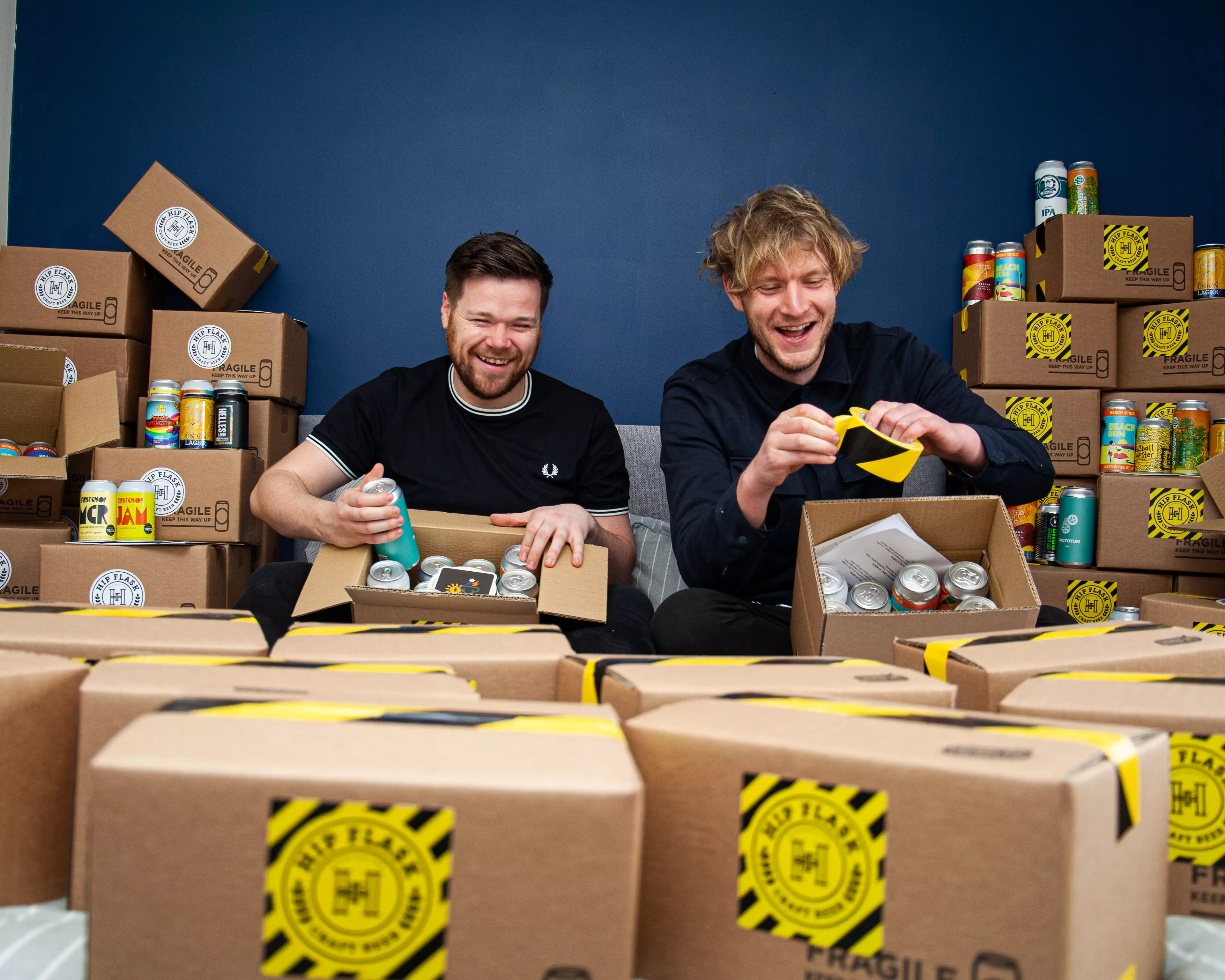
There were difficulties to overcome - you can't just start selling beer, to start with - but after licensing Sam's spare bedroom, they got to work.
Advert
Remarkably, the spare room licence arrived the day after Sam was made redundant.
"In July, Sam was made redundant and that was a real kick in the arse to start making money from it," said Phil.
"We started off selling to friends, and then friends of friends, and it's built up from there.
"I can't overstate how brilliant it's been. I can't tell you how buzzing we are when we get an email for a sale. It's so rewarding, and it's going from strength to strength.
"With the plan for coming out of lockdown, I hope that we've put the groundwork so that we can just carry it on."
They'll have to, because whilst Phil is still furloughed, it's Sam's primary source of income.
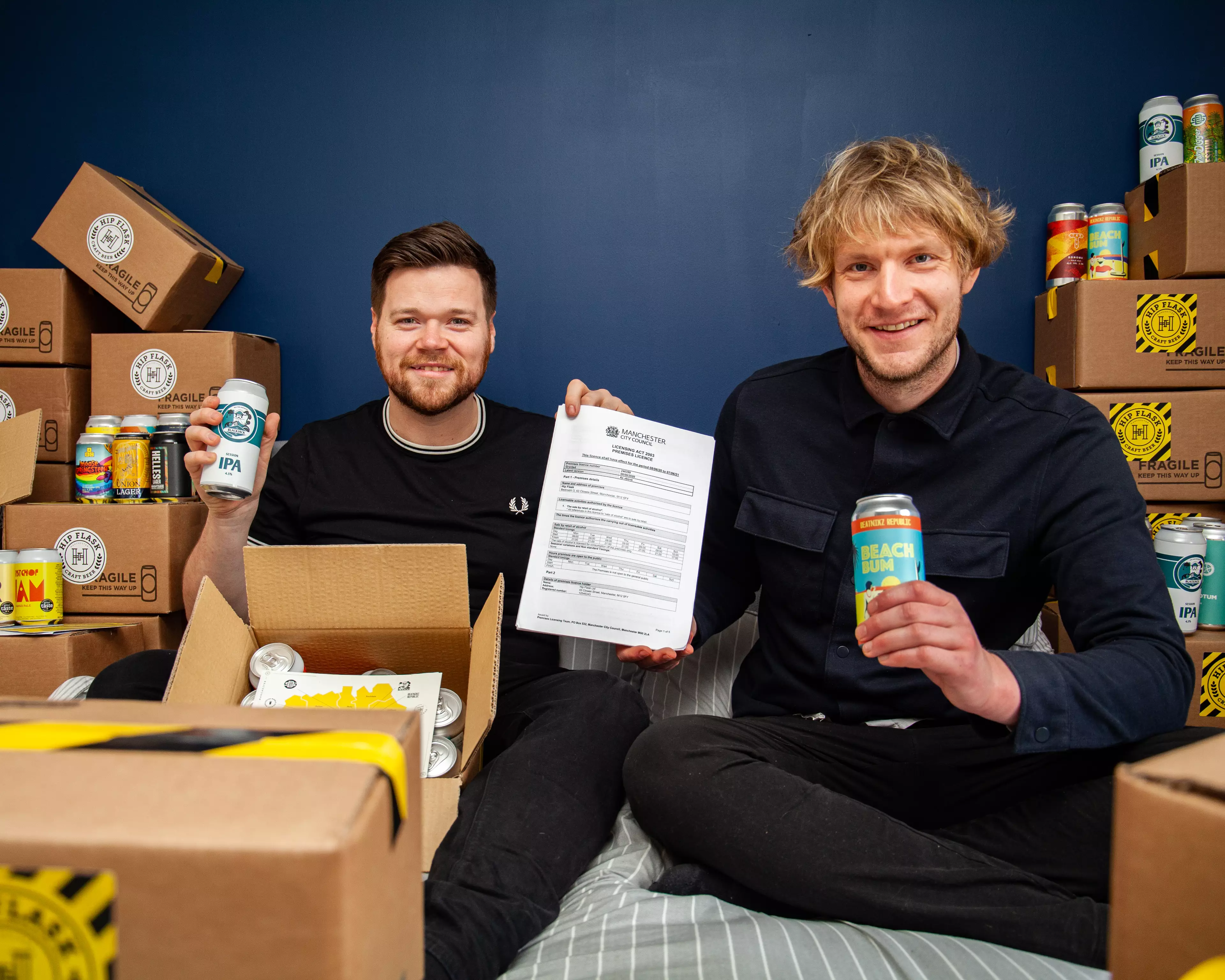
Sam explained: "We were looking at what we could do and where we could license it without just going for it straight away.
"We were running out of options, looking at storage lockers - but then we thought, let's just see if we can get it in my spare bedroom.
"We put the application in and the council said: 'we've pumped a lot of money into this area, we don't want a pub there.' So we had to explain to them that we're a craft beer company.
"In the end we had to go to a hearing about it and they couldn't seem to wrap their heads around the idea that we wanted to start a business out of a spare bedroom.
"We said 'Apple started in a garage!' - you've got to start somewhere, haven't you?"
Advert
He continued: "Obviously the pressure is more on me because I've got to make a living out of it, and my girlfriend is pregnant now, so that's put a bit more pressure on.
"It's been challenging but the best thing we've ever done. Both of us. It was a conversation we've had for years.
"It's just one of those things that without the pandemic would probably have never happened, but the day I got furloughed, I rang Phil and said 'let's go for it'.
"We registered the business the day after and we've not stopped from there"
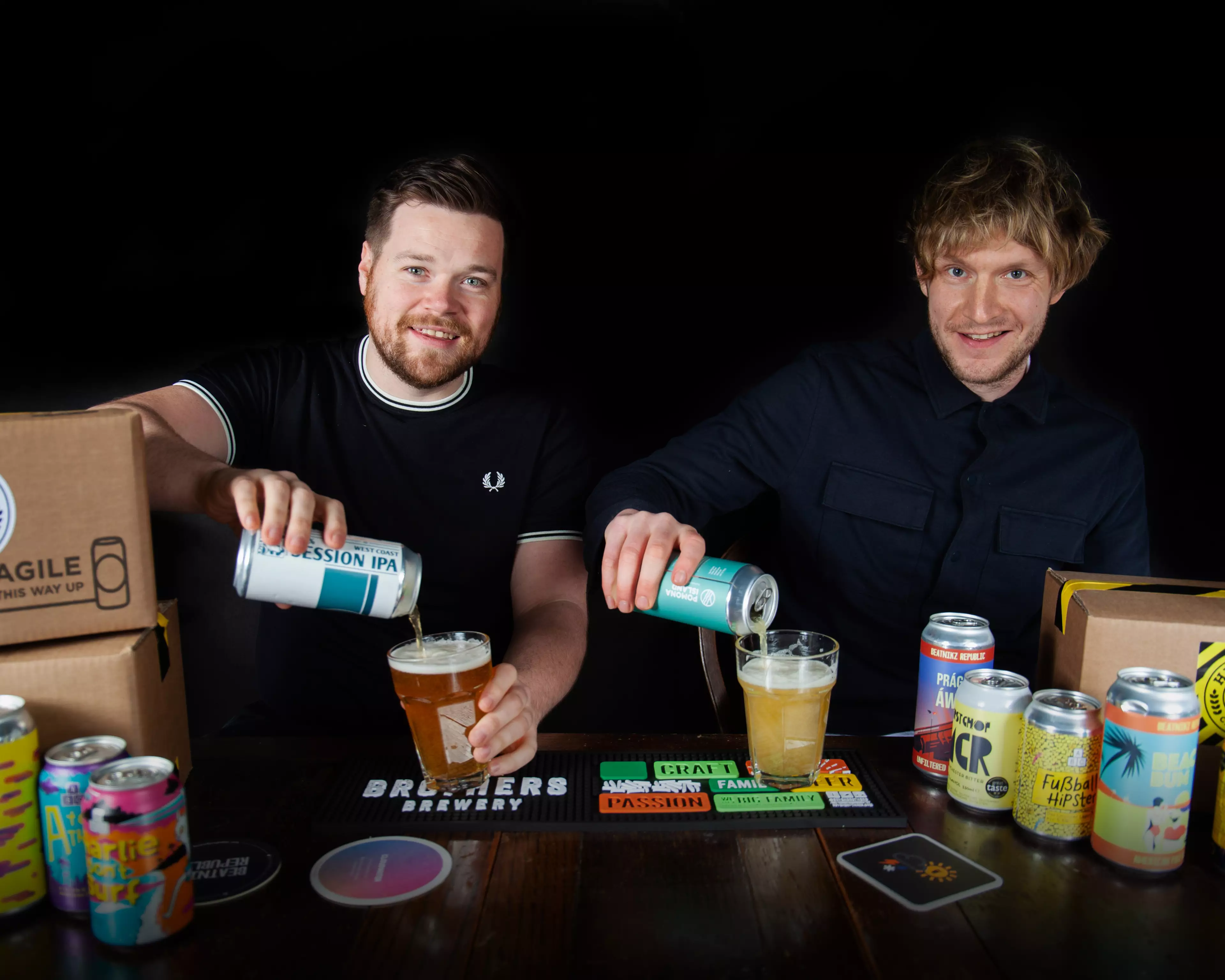
Phil added: "Obviously we're all online at the moment, but the dream is to have a bar or a shop so we've got a customer facing side of it, too."
The pair had very little experience of business before starting out, but they've learned on their feet, and necessity has been the mother of their invention, so far.
Phil said: "I listened to a few audiobooks on how to set-up a business, but we haven't followed any of it!
"We just tried things, and did a few things that haven't worked, but what has worked we've stuck to.
"All in all it's been brilliant. I don't know what I'd be doing now if we weren't doing this. I suppose I'd have to go and get a job or something."
Advert
Millions of people have found themselves in similar situations, having been placed on the furlough scheme or losing their jobs entirely.
The challenges have been vast.
Statistics from the Local Data Company (LDC) showed that England, Wales, and Scotland lost an average of 48 businesses from the retail, leisure, and hospitality sectors every day.
In total, 17,532 chain shops were forced to close during 2020. Just 7,655 were opened, making the net closure of 9,877 a third higher than in 2019.
Advert
In total, the Office for National Statistics (ONS) found that business closures between October and December 2020 were 37 percent higher than 2019, and the highest in four years.
It's fair to say, it's been a slog for businesses of all sizes and across all sectors.
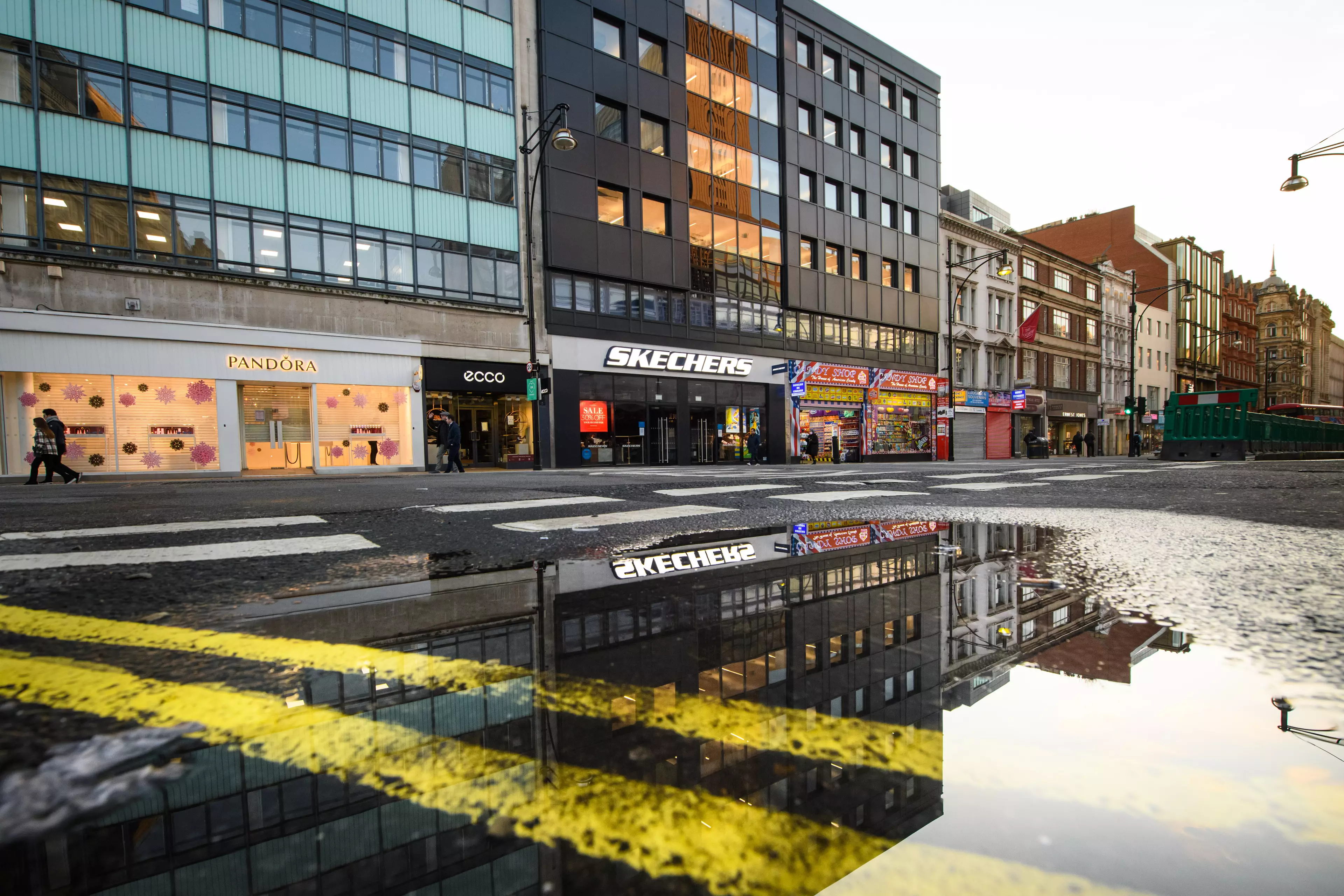
However, out of destruction, there was also creation. The ONS also found that business creation was 24 percent higher than in 2019, and higher than any fourth quarter in four years.
Perhaps unexpectedly - and as a result of the furlough scheme and the Corporate Insolvency and Governance Act passed under emergency measures in Parliament - businesses filing for insolvency also fell by 27 percent during 2020, when compared to the previous year's figures.
Whilst the story of Hip Flask is rooted in the need to find a way to pay the bills in difficult circumstances, others have found their motivation to make a career change for different reasons.
In Mark Shephard's case, the desire to forge new career wasn't foremost in his mind. It was his desire to ease his mother's suffering.
Shephard had seen his mother struggle for years with her rheumatoid arthritis and - after a bit of research online - discovered the potential effects of collagen on lessening symptoms.
In May, he started selling 'Reverse Life' - a product that can be used for both therapeutic and cosmetic purposes - and sold more than 2.7 million products within the few months that they've been trading.
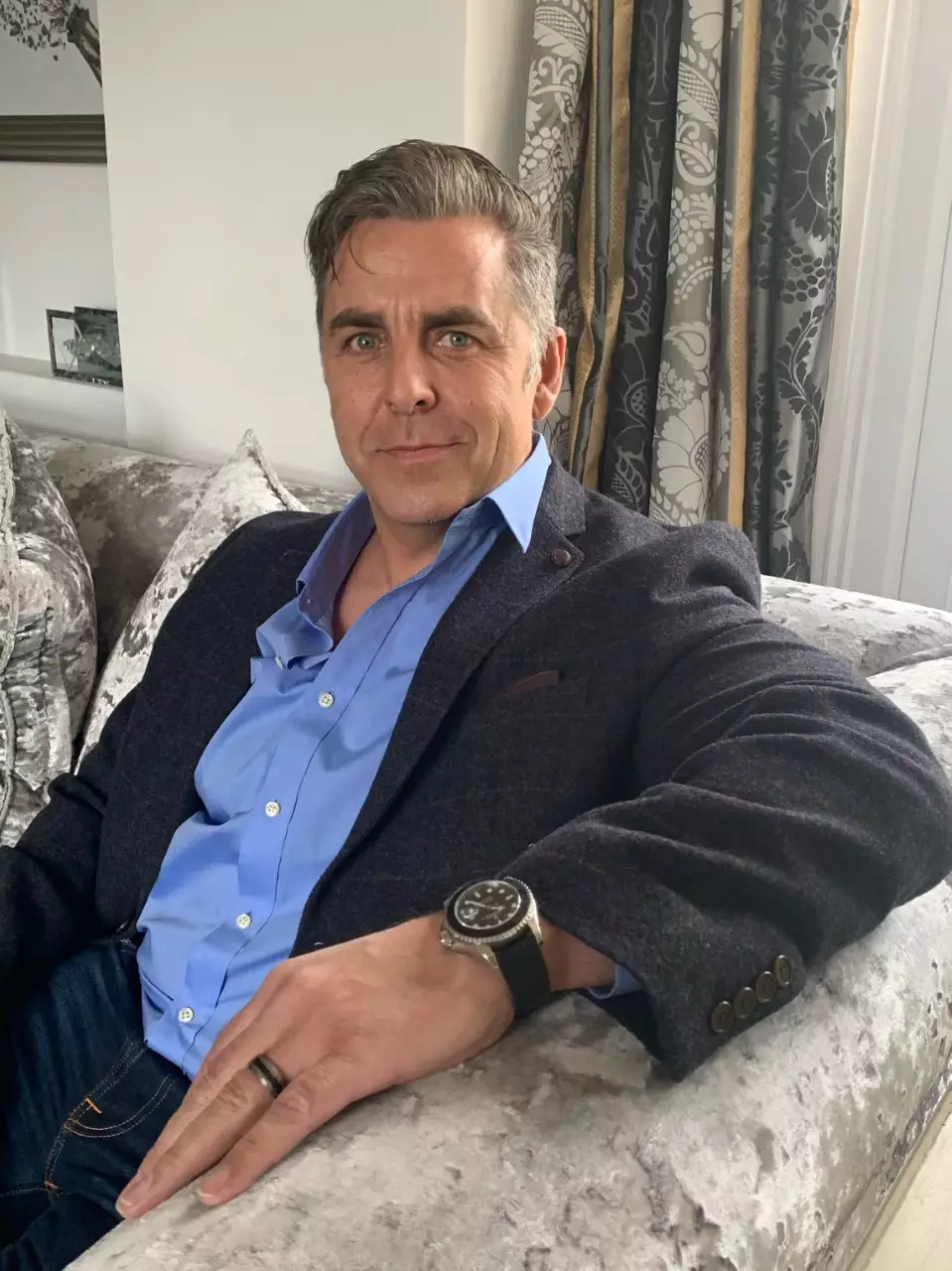
He explained: "She's got arthritis and chronic rheumatoid arthritis, so she's in terrible pain. So, out of that, I was think 'what the hell do I do?' We'd seen doctors and specialists - nothing.
"I started looking at the benefits of things that helped joints, and stumbled across collagen. I saw there were some really good renowned companies that have proven some facts about it for arthritis, for the skin for nails and hair growth, and for the immune system.
"I managed to get 100 little bottles, gave them to my mum and within nine days she said she felt a difference."
After branching out to a wider test - which he claims included someone within the Manchester United set-up - he noticed that the benefits seen by his mother, and many more, were seen across the board.
Moreover, he started taking it himself and reported the same effects.
Eight months later, and after some social media assistance, Reverse Live is in the top one percent on e-commerce site Shopify's beauty section.
Mark continued: "Straight up, within eight months we've done 2.7 million in sales. We're packing up around 1,000 orders each day.
"We're selling so fast we're actually selling out of stock."
As the business continues to expand and make ever-increasing sums of money, Mark hasn't lost sight of the reasons he started the business in the first instance.
He said: "Sometimes some people talk the world down, and other people see the good in the bad. I'm that person.
"You can't look at the problem of the opportunity, you have to look at the opportunity in the problem.
"Don't look at the difficulty of it, look at the opportunity of Covid-19.
"I said I wanted to start up a company called Reverse Life because I know it's going to make people better and happier, and I truly believe that I can make it a massive company.
"If I can do this, it proves to everyone in the UK who has any doubt that you can go into an overcrowded marketplace with huge juggernauts and win."
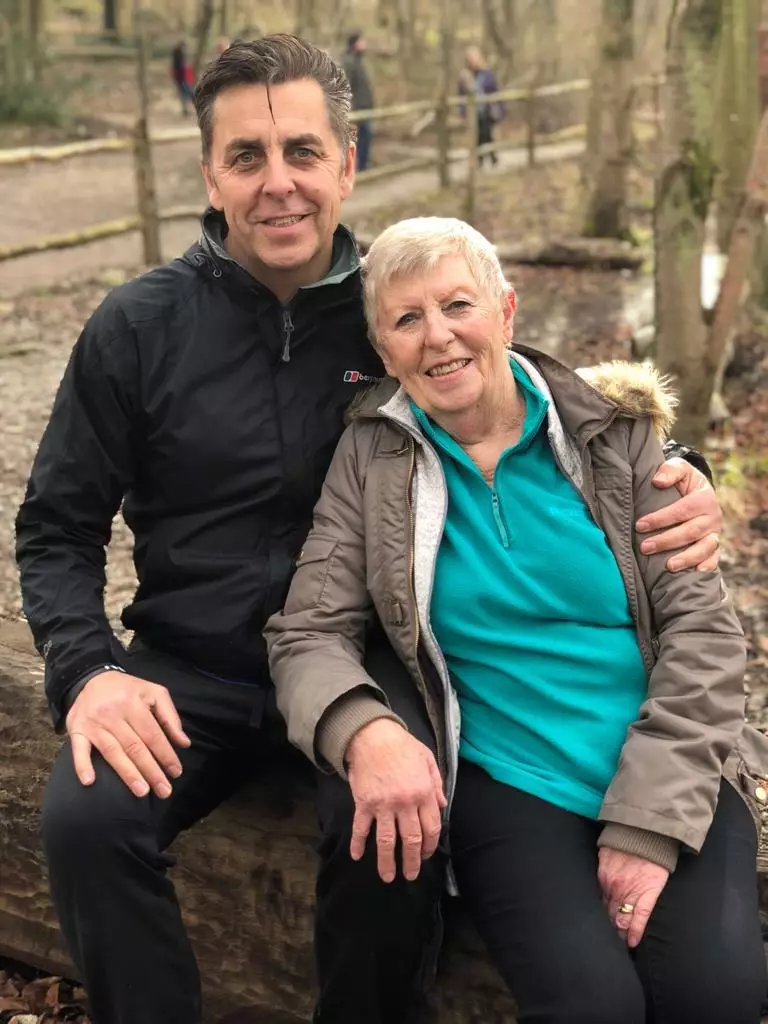
He added: "I'd absolutely [love to] help all the charities for elderly people that have joint problems and back problems.
"I'd give it away so every single person that buys it gives back to the community.
"I'd be reinvesting that to really help people. So many people need help and I just don't see people stepping up to the plate unless it helps them with their tax returns."
Whilst there have been significant success stories emerging from the coronavirus pandemic left right and centre, it is hard to hide from the reality, which is that overall, the economy has taken a bashing.
ONS figures in November showed that half of businesses experienced a decrease in takeover - perhaps not that surprising - but 34 percent of businesses within the accommodation and food service activities industry had 'no or low confidence' that they could survive the next three months.
Then, in January 2021, the UK's GDP took another downturn by 2.9 percent, with the service industry and retail taking the worst hit because of the lockdown restrictions.
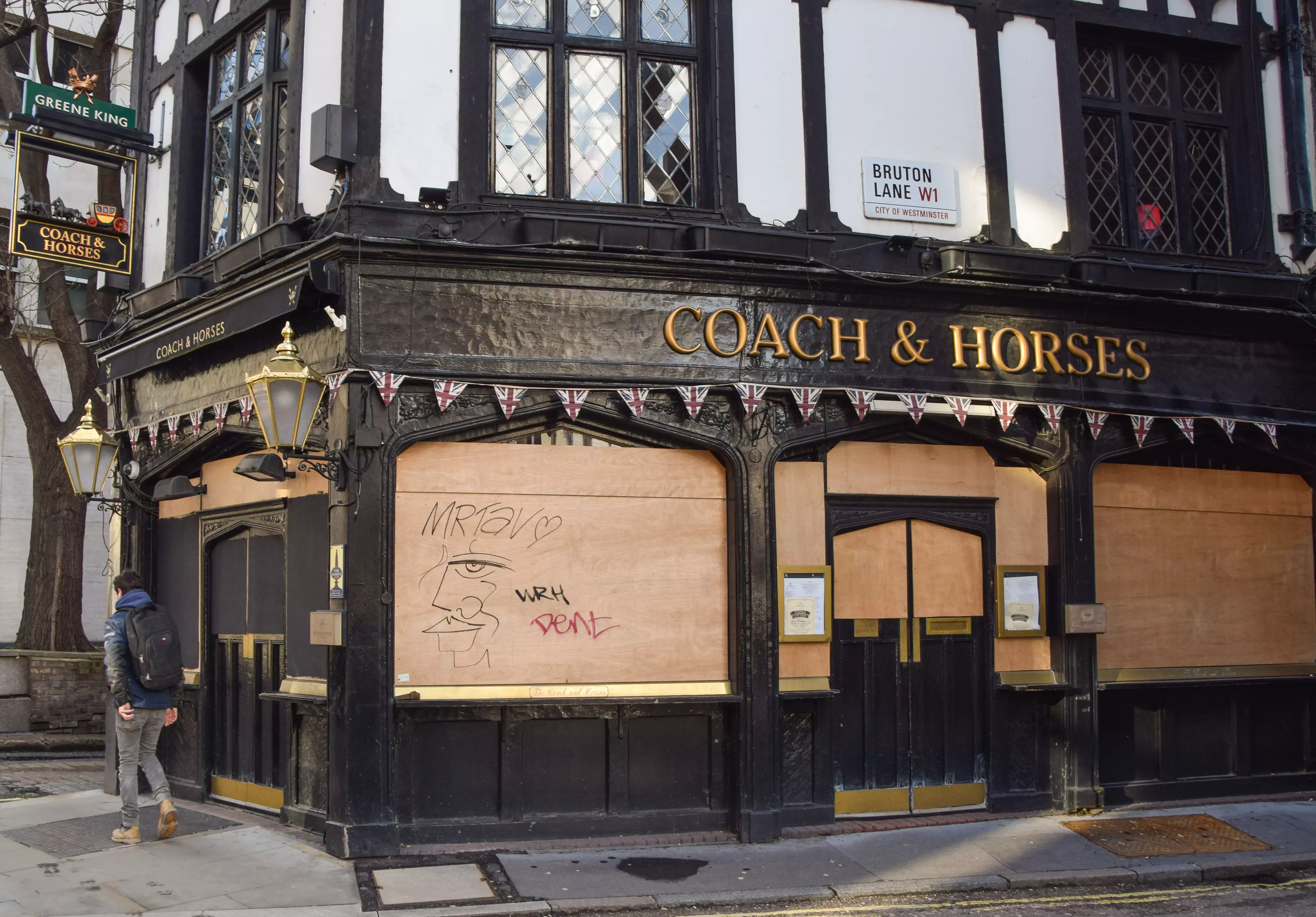
However, there are green shoots. The latest ONS data showed that the construction industry has started to rebound, and the forecasts are more positive as the UK starts to unlock and coronavirus restrictions are eased.
The high street is changing. Familiar names are falling but a new shift to local is presenting opportunities for business and customers alike.
If this lockdown year has taught us anything, it is that the businesses we care about the most are the most fragile. Use it or lose it has never been so prescient.
If that isn't a good excuse to order in some beer, or visit a pub, what is?
Featured Image Credit: Jack HowardTopics: People of The Pandemic, UK News, Business, lockdown, Money, PeopleOfThePandemic, Coronavirus, Covid-19